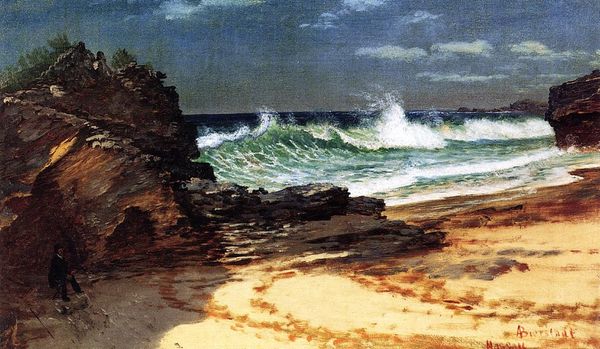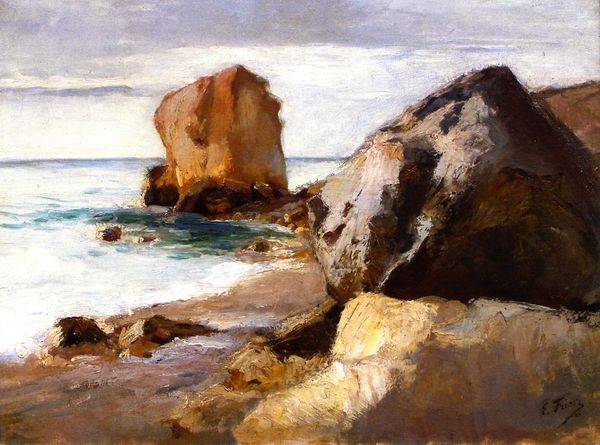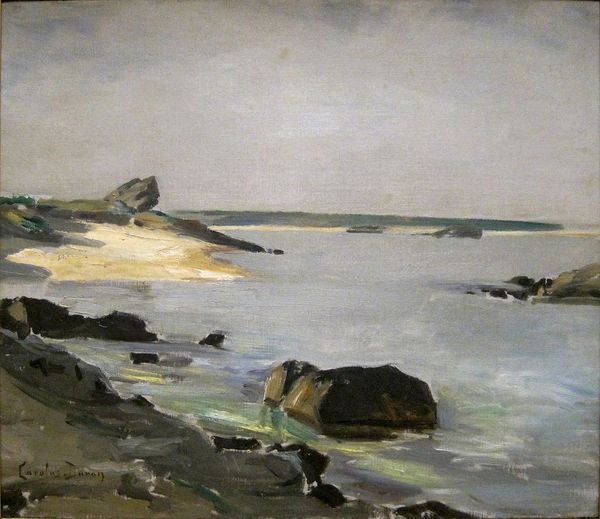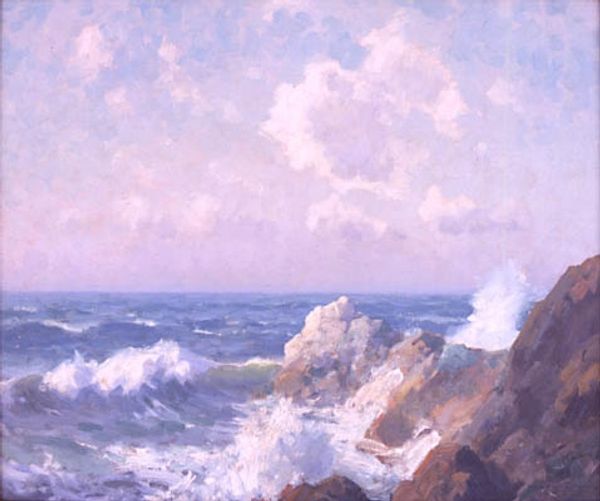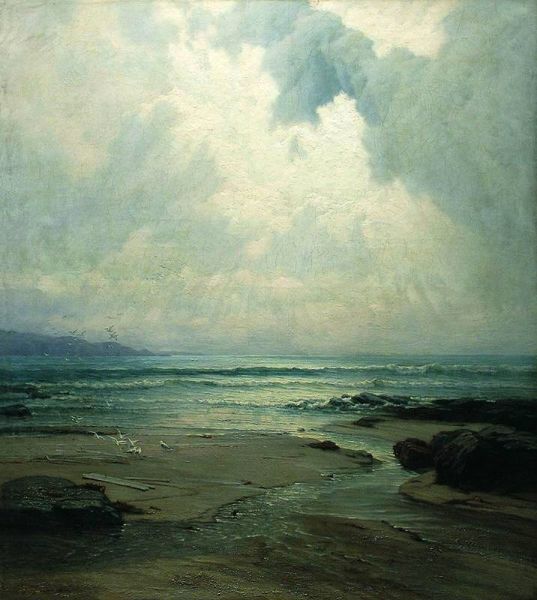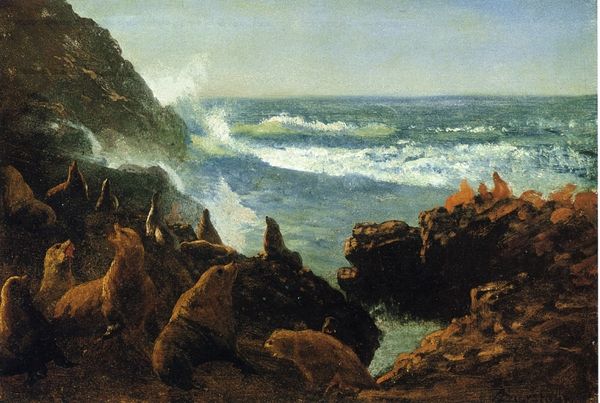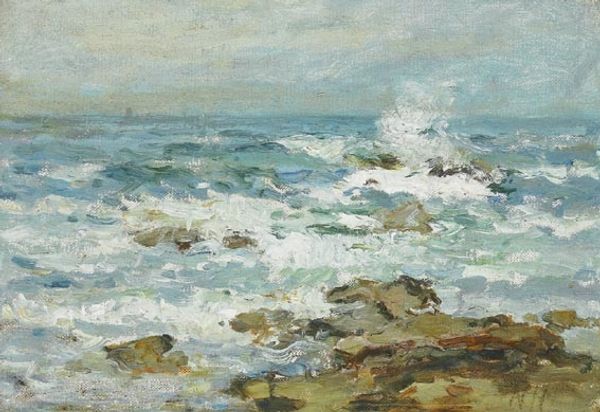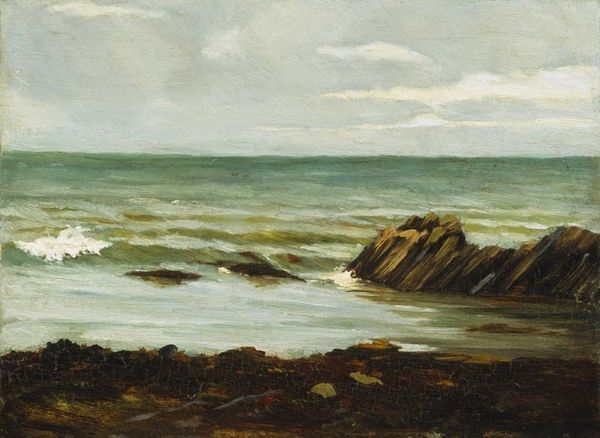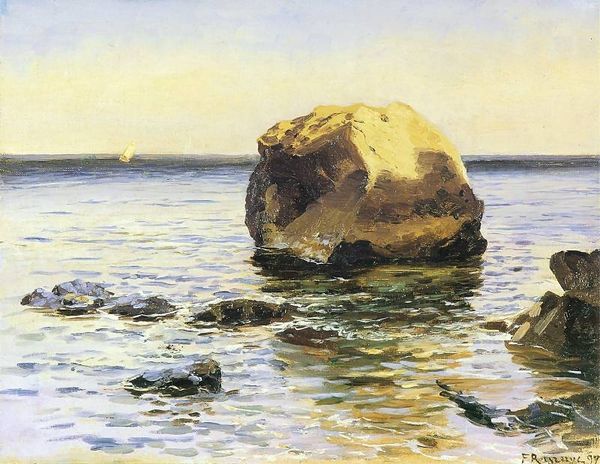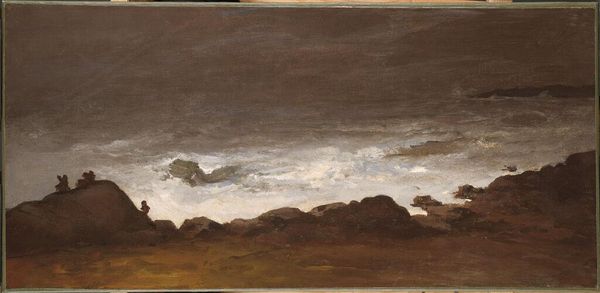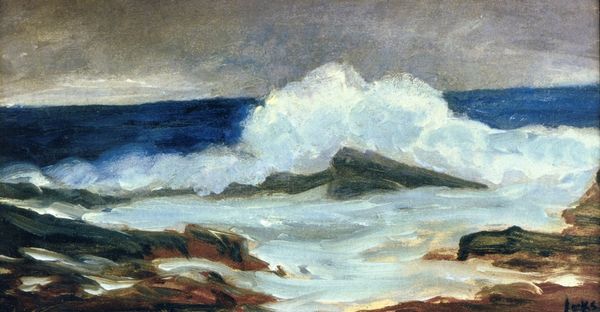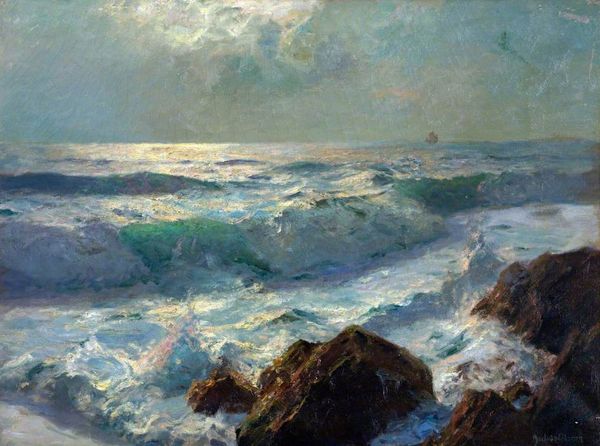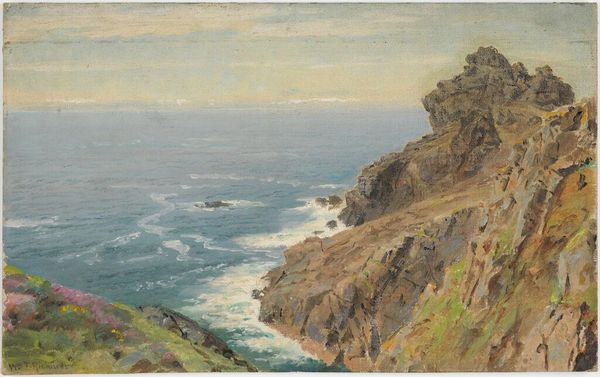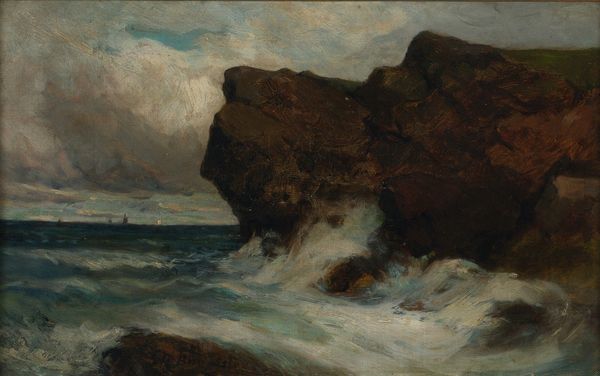
painting, oil-paint
#
painting
#
impressionism
#
oil-paint
#
landscape
#
impressionist landscape
#
oil painting
#
cityscape
#
realism
Copyright: Public domain
Curator: Immediately I am struck by a pervasive feeling of isolation. It’s a lonely scene. Editor: You're looking at Nikolai Ge's oil painting, "Bay in Livorno". While the date of creation is unknown, art historians often tie it to his Italian period, a time of exploration. Curator: I can see the 'Italian' quality that scholars are referring to here: the dramatic chiaroscuro on the rocks and a kind of operatic solemnity in the waves. Note how he divides the canvas horizontally to separate the earth’s firm surface from the fluid ocean. The impasto on the breaking waves are rendered as impetuous, gestural flicks of his brush. Editor: It is compelling to consider the socio-political implications of realism alongside the rise of Russian landscape painting in the 19th century. Works like this invited viewers to connect with the Italian landscapes as places invested with their own unique histories. These artists fostered new modes of looking that reinforced regional pride, and gave rise to the rise of tourism. Curator: Yet the artist still allows himself great freedom in representing natural forms and imbuing the rocks with qualities suggestive of monumentality. It is rendered almost as though it were the ruin of a civilization that has long disappeared, weathered and scarred by time. Editor: True, and it’s also useful to consider the impressionistic qualities. Notice the subtle brushstrokes in the sky and their effect of open air that invites one's own reflections. While rooted in tradition, Ge embraced modernity, engaging with wider audiences who found meaning and resonance in art reflecting contemporary issues. Curator: Yes. Ge appears to explore some liminal state of reality that teeters between tradition and something avant-garde, offering his audience an intriguing, somewhat melancholic composition. Editor: I agree. Viewing this, I think more broadly about how artistic landscapes are always implicitly imbued with political ideas, challenging the canon and shaping public awareness of place and time.
Comments
No comments
Be the first to comment and join the conversation on the ultimate creative platform.
